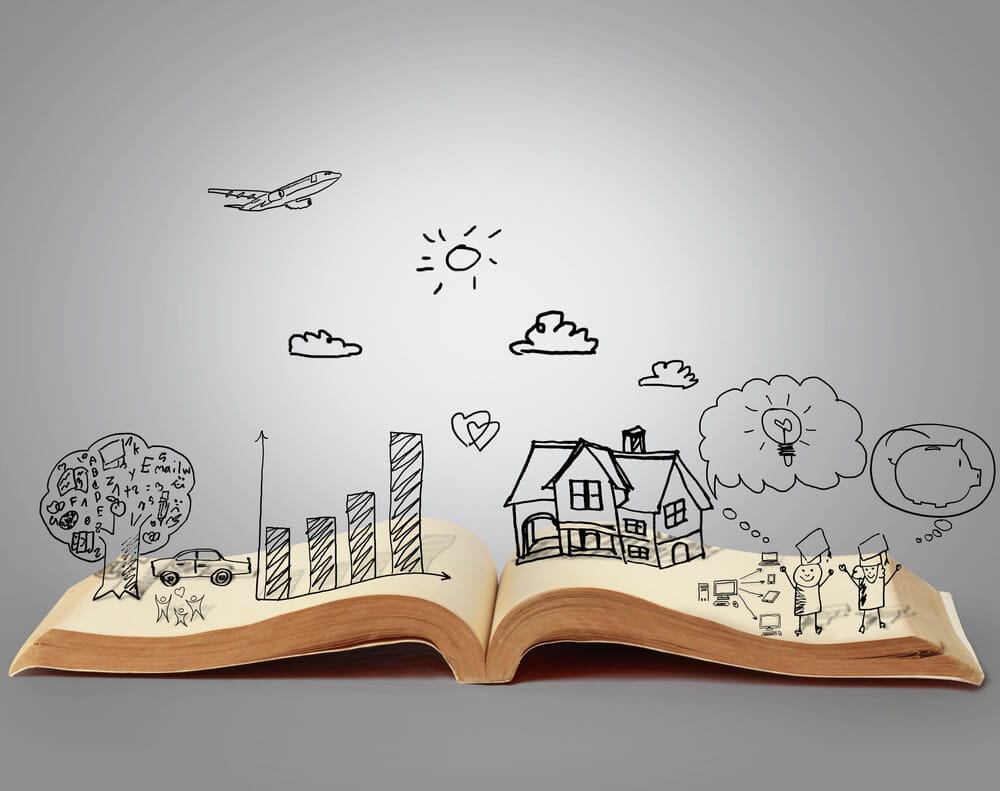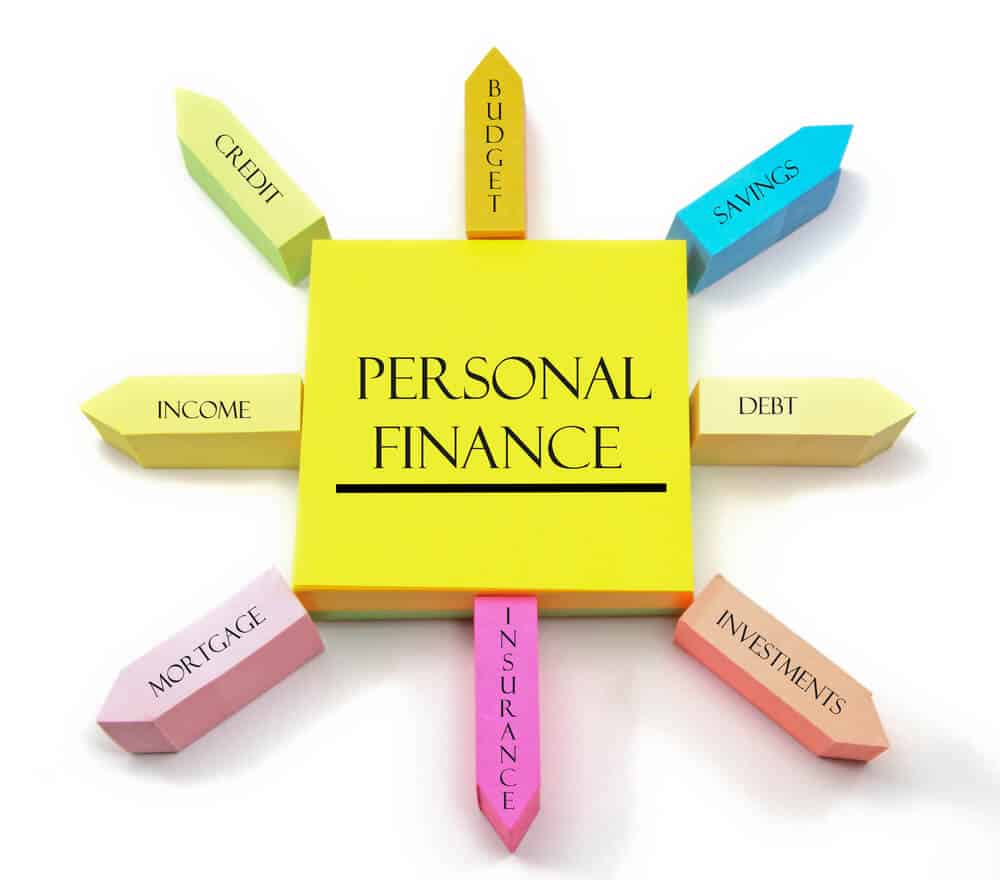If you’re just starting to take control of your finances, it can be overwhelming to know where to begin.
There are countless resources available, from online articles and videos to podcasts and books.
However, books can be a particularly helpful resource for beginners who want to learn the basics of personal finance.
Let’s explore the best personal finance books for beginners that can help you build a strong foundation of financial knowledge.

Starting with personal finance might feel a bit scary, but it’s important for your money future.
Reading personal finance books can help you develop a positive mindset and provide practical tips for managing your money.
Whether you’re learning the basics or exploring advanced strategies, there’s a book for you.
Key Takeaways
- Personal finance books can be a helpful resource for beginners looking to take control of their finances.
- Developing a positive mindset around money is crucial for financial success.
- There are a variety of personal finance books for beginners available, from basic budgeting and saving to more specialized strategies.
Getting Started with Personal Finance

If you’re new to personal finance, it can be overwhelming to know where to start. But don’t worry, with the right resources and mindset, you’ll be on your way to financial success in no time.
Understanding the Basics
Before you can start making progress with your finances, it’s important to understand the basics.
This includes creating a budget, understanding your spending habits, and learning how to save more money.
Creating a budget is the foundation of personal finance.
It involves tracking your income and expenses and making sure you’re not spending more than you earn.
This is essential to understanding your finances. There are many tools available beyond the traditional spreadsheet like budgeting apps to help you stay on track.
Quick Tip!
Look at your bank statements and credit card bills to see where your money is going. Are there any areas where you can cut back? Perhaps too much spending on dining out or subscription services. These are quick areas to identify to make changes to your spending habits and save more money.
Setting Financial Goals
Once you have a good understanding of the basics, it’s time to set some financial goals. This can help you stay motivated and focused on your financial journey.
Financial goals can be short-term or long-term. Short-term goals might include paying off credit card debt or building an emergency fund.
Long-term goals might include saving for retirement or buying a house.
When setting financial goals, it’s important to make them specific, measurable, and realistic.
For example, instead of saying “I want to save more money,” set a specific goal like “I want to save $500 per month.” This will help you track your progress and stay motivated.
Key Books for Financial Knowledge

There are many great books out there that can help you build a strong foundation of financial knowledge.
Here are some key books to consider:
Books on Investing
Investing can be intimidating, but it’s an important part of building wealth:
- The Simple Path to Wealth by JL Collins: This book is a great introduction to investing for beginners. It covers the basics of index fund investing and explains why it’s a simple and effective way to build wealth over the long term.
Books on Money Mindset
Your mindset can have a big impact on your finances. Here are some books that can help you develop a healthy relationship with money:
- The Psychology of Money by Morgan Housel: This book explores the psychology of money and how our beliefs and behaviors can impact our financial lives. It’s a fascinating read that can help you understand why you make the financial decisions you do.
Books on Financial Independence
Financial independence is the foundational goal of many people, here are some books to help:
- Your Money Your Life by Vicki Robin & Joe Dominguez: A helpful guide with nine steps to change how you think about money and reach financial independence. It gives practical advice for taking control of your finances.
- Retire Early with Real Estate by Chad Carson: This book explores how real estate investing can help you achieve financial independence and retire early. It’s a great resource for anyone interested in using real estate to build wealth.
Remember, building a strong foundation of financial knowledge takes time and effort.
Reading books is the first step, but applying what you learn, will set you up for a lifetime of financial success.
Specialized Personal Finance Strategies

As a beginner in personal finance, you may have specific financial challenges that require a specialized approach.
Dealing with Debt and Student Loans
If you’re having trouble with debt or student loans, it can be hard to know what to do.
Luckily, many books about money can help. One helpful book is “The Total Money Makeover” by Dave Ramsey.
It gives you a step-by-step plan to get rid of debt and start building wealth.
Another good choice is “Debt-Free Degree” by Anthony ONeal, which advises on paying for college without getting into debt.
Financial Planning for Millennials
If you’re a millennial, you might be dealing with special money challenges like student loan debt, not seeing much increase in wages and expensive housing.
A book that can guide you through these issues is “Broke Millennial” by Erin Lowry. It gives practical advice on handling your money and growing wealth, especially if you’re starting with little.
Another good choice is “The Automatic Millionaire” by David Bach, which has a straightforward plan for building wealth gradually.
Navigating Finances with Your Partner
If you’re in a relationship, managing your finances as a couple can be challenging. One book that can help is “The 5 Money Personalities” by Scott and Bethany Palmer. This book helps you understand your money personality and that of your partner, so you can work together to achieve your financial goals.
Another great option is “Smart Couples Finish Rich” by David Bach, which provides practical advice on how to build wealth as a couple.
List of books in this section:
- “The Total Money Makeover” by Dave Ramsey
- “Debt-Free Degree” by Anthony ONeal
- “Broke Millennial” by Erin Lowry
- “The Automatic Millionaire” by David Bach
- “The 5 Money Personalities” by Scott and Bethany Palmer
- “Smart Couples Finish Rich” by David Bach
Remember, there’s no one-size-fits-all approach to personal finance. By reading these specialized personal finance books for beginners, you can gain the knowledge and confidence you need to tackle your specific financial challenges.
Final Thoughts and Taking Action

Now that you know the best books to read, it’s time to take action!
Keep in mind, that these books won’t change your life right away. It takes time and effort to become financially independent, but with a step-by-step plan and practical advice, you can get there.
The amount of time and effort you put into will determine your willingness to adjust your mindset of how you think about money.
One important thing to do is start tracking your expenses. This helps you see where your money goes and where you can spend less.
Another important lesson from these books is about investing.
Even if you start with a small amount, investing early can help your long-term money goals.
Lastly, don’t hesitate to find more resources and support.
Online communities and personal finance blogs can give you helpful ideas and keep you motivated as you work towards your goals.
.
Frequently Asked Questions

What are some essential personal finance books for those just starting?
If you’re new to managing money, some books can help you start well. “The Total Money Makeover” by Dave Ramsey is excellent for getting out of debt and building wealth. Another good book is “Your Money or Your Life” by Vicki Robin and Joe Dominguez, a classic that can change how you think about money.
Can you recommend introductory books on investing for beginners?
Investing can be intimidating, but several books can help you get started. “The Little Book of Common Sense Investing” by John C. Bogle is a great introduction to passive investing. “The Intelligent Investor” by Benjamin Graham is another classic book that can help you understand the fundamentals of investing.
Which books should I read to improve my financial literacy?
Improving your financial literacy is an ongoing process, but there are a few books that can help you get started. “The Simple Path to Wealth” by JL Collins is a great introduction to personal finance and investing. “The Millionaire Next Door” by Thomas J. Stanley and William D. Danko is another classic book that can help you understand the habits of wealthy individuals.
What are the top personal finance books recommended by experts?
There are many personal finance books recommended by experts, but a few stand out. “The Bogleheads’ Guide to Investing” by Taylor Larimore, Mel Lindauer, and Michael LeBoeuf is a great resource for passive investors. “The Psychology of Money” by Morgan Housel is another great book, which looks at the connection between psychology and personal finance.
How can I begin my journey in learning the basics of personal finance?
Learning the basics of personal finance can be overwhelming, but there are a few simple steps you can take. Start by creating a budget and tracking your expenses. Once you have a handle on your spending, start learning about saving and investing. “The Richest Man in Babylon” by George S. Clason is a great book that can help you understand the importance of saving and investing.
What is the single most important principle I should learn from personal finance books?
The single most important principle you can learn from personal finance books is to live below your means. This means spending less than you earn and saving the difference. By living below your means, you can avoid debt and build wealth over time.